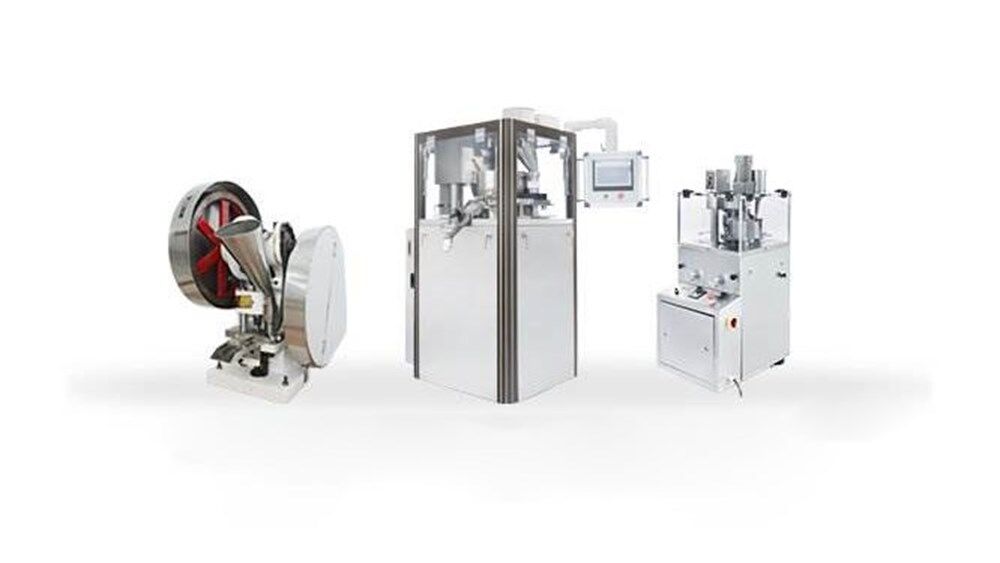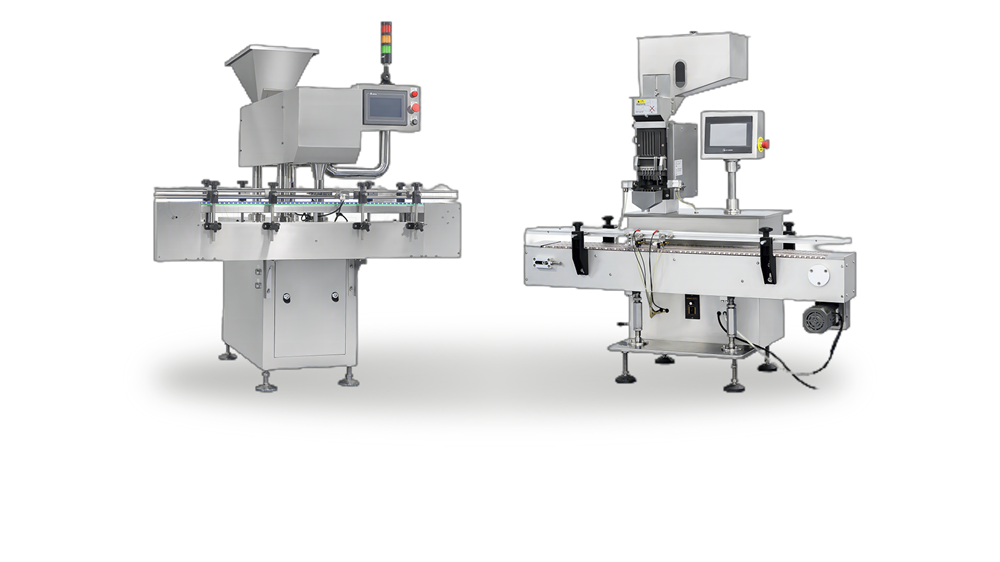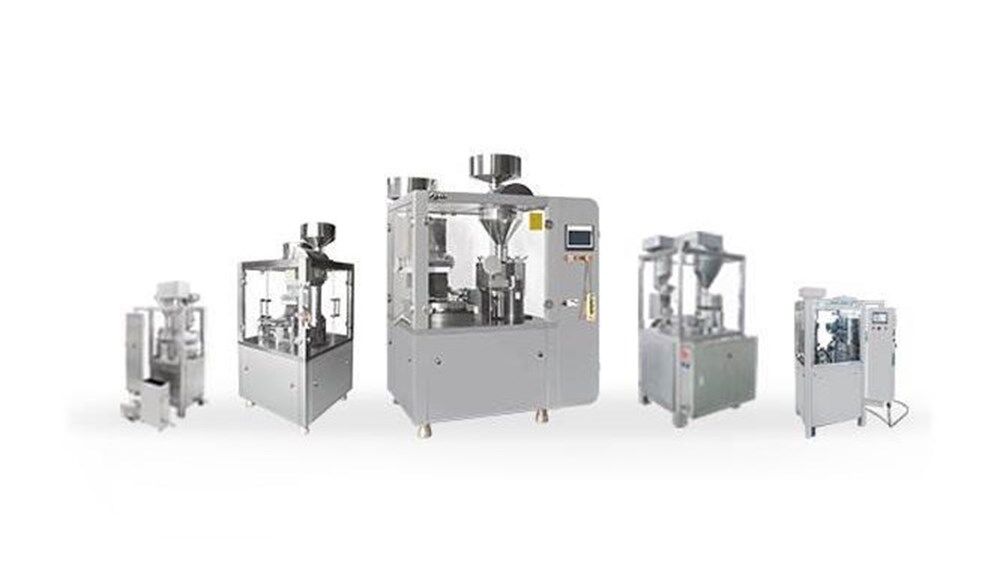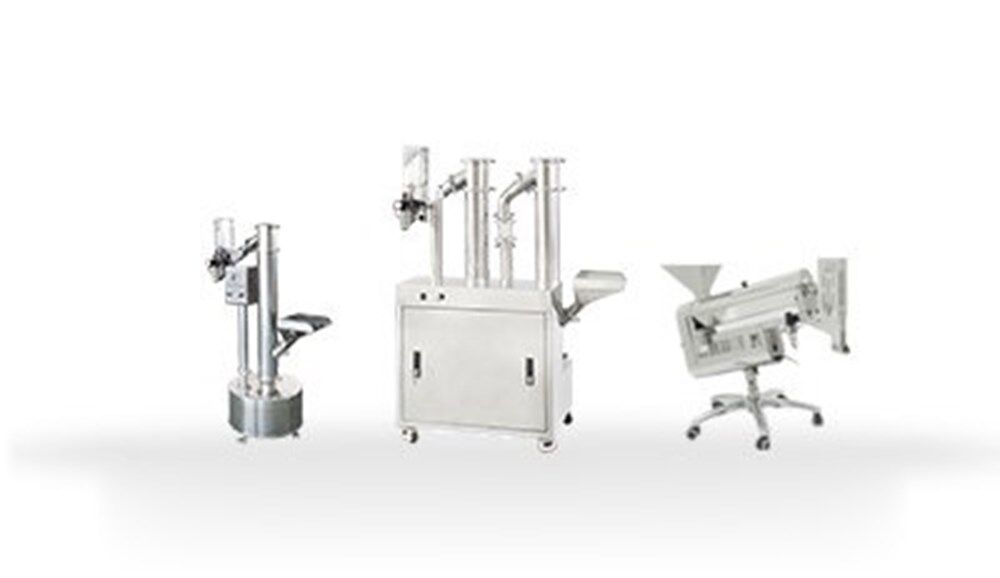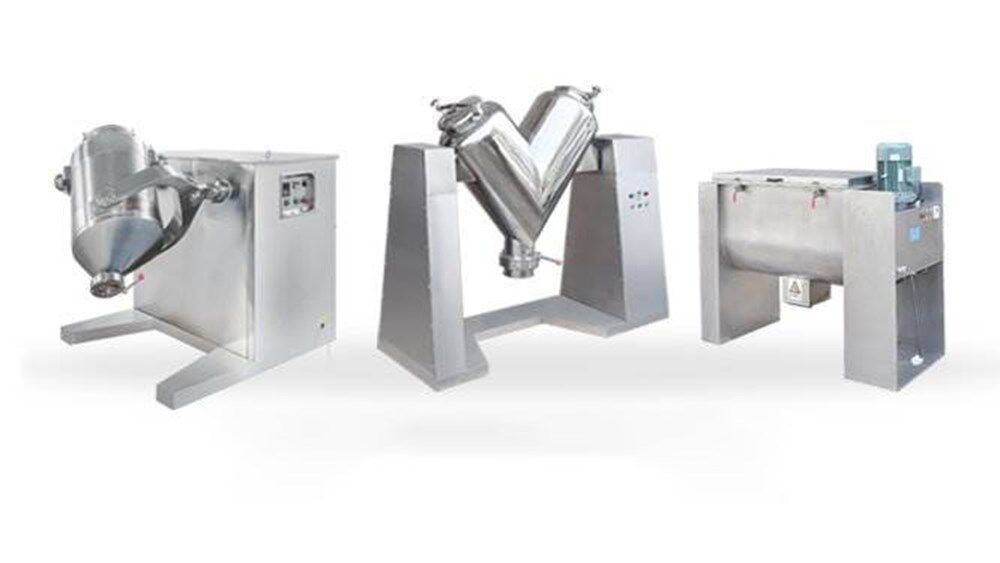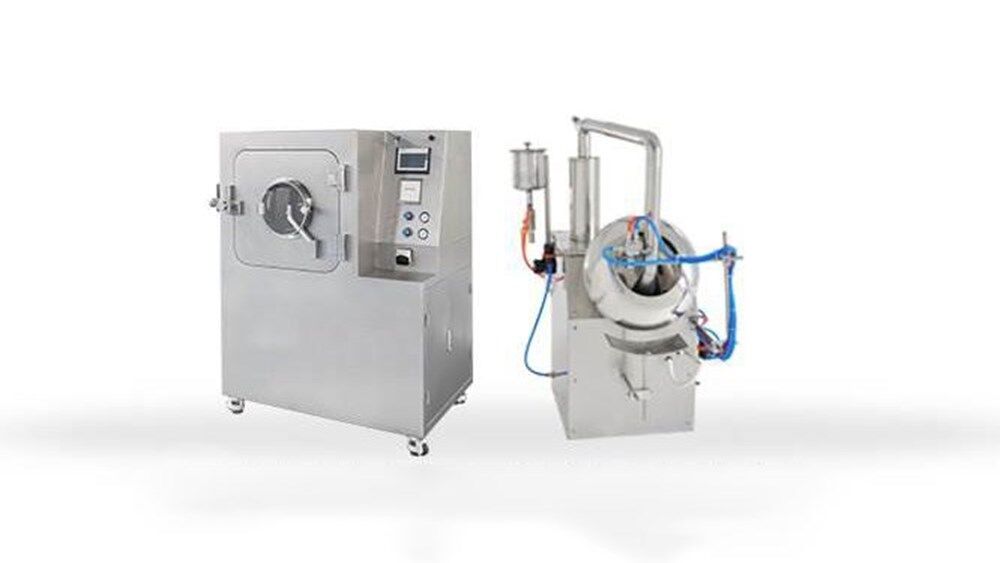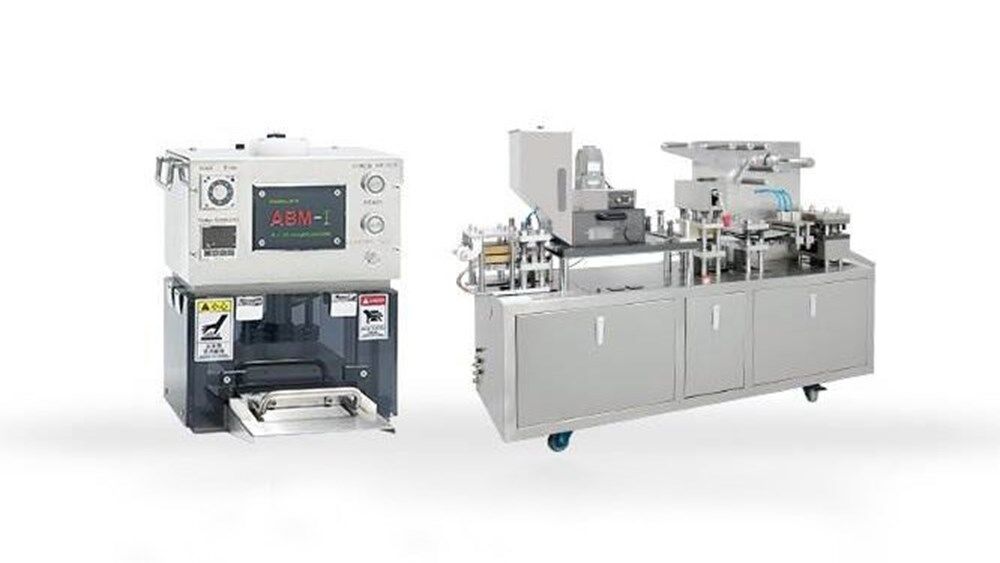A Guide to Choosing the Best Induction Sealer
Induction sealers are must-have pieces of equipment for a variety of manufacturing businesses. These machines work by utilizing electromagnetic induction to create a secure, hermetic seal on the lips of packaging containers such as bottles and jars. The seal can keep everything inside these containers safe, leak-proof, and tamper-evident.
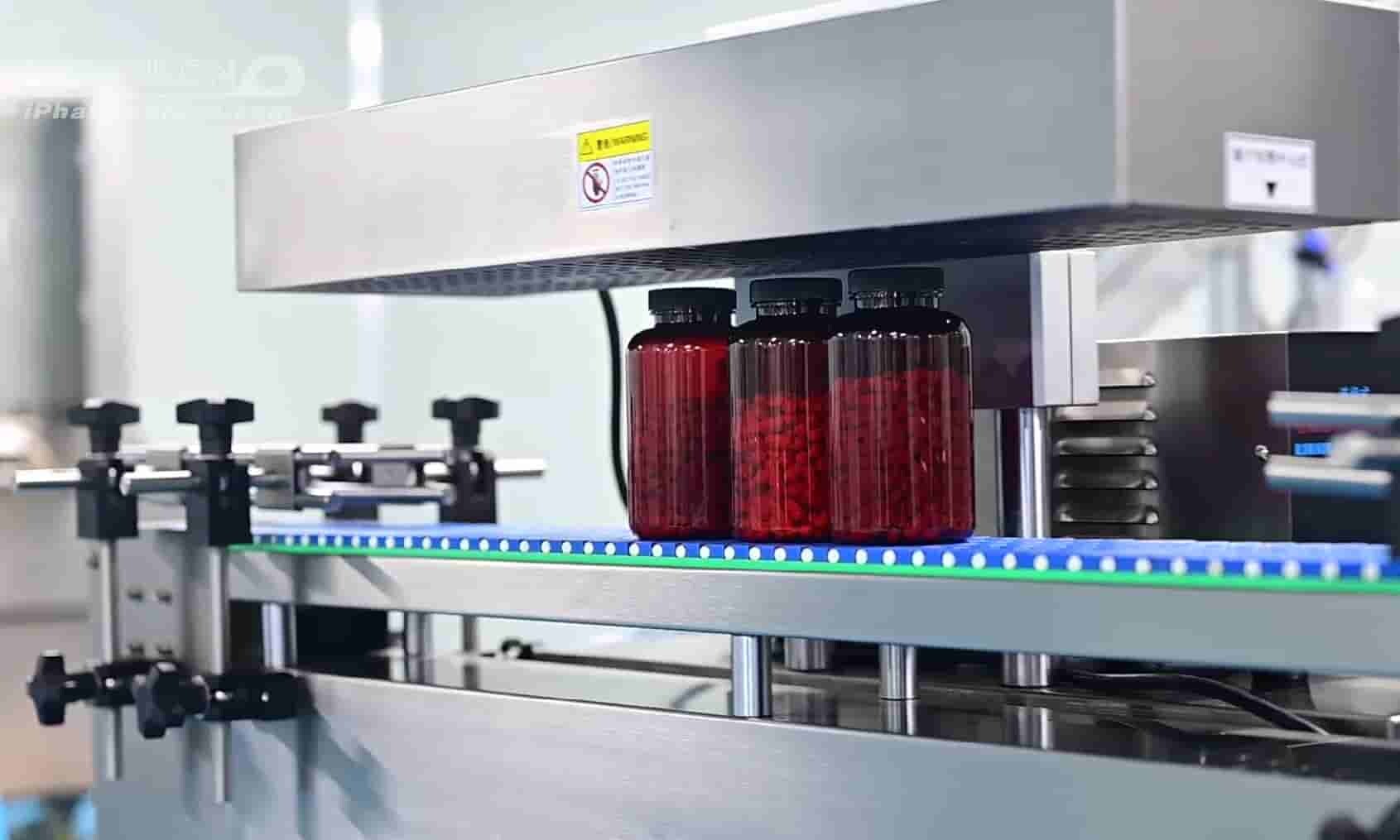
Are you considering investing in a reliable induction sealer? This guide covers everything you need to know about looking for the right one. Below, you will find our top picks for the best induction sealers, the different types of induction sealing machines, as well as their benefits and drawbacks. After reading, you will know what to look for when making a purchase.
3 Best Induction Sealers of 2024
A good induction sealing machine should be able to meet your specific packaging needs. It should come in a user-friendly, durable design for easy operation and simple maintenance. The machine should also be capable of handling various induction liners and containers. Most importantly, it needs to provide a consistent and reliable sealing effect.
Here are our top picks for the best induction sealer.
|
|
Model |
Price (USD) |
|
Best Induction Sealer Overall |
LGYF-2000BX |
$2,959.00 |
|
Runner-Up Induction Sealer |
LGYF-2000AX-II |
$1,869.00 |
|
Budget Induction Sealer Pick |
DGYF Series |
$118.99~$148.99 |
Best Overall: LGYF-2000BX Induction Sealer
The LGYF-2000BX has all the features you need for a good induction sealer. It's an automatic continuous induction sealing machine that can integrate into an existing packaging line. This model has become popular due to its exceptional sealing performance and versatility. The LGYF-2000BX is a top choice for businesses seeking efficient induction sealing solutions.
Key Features
- Stainless steel cart boasts lockable casters for easy mobility
- Adjustable sealing diameters from 20 to 130 mm for various container types
- Automatic conveyor stop on equipment failure to prevent product mix-ups
- Stepless adjustable conveyor speed for optimal sealing effect
- Adjustable sensor heads for sealing objects from 40 to 400mm in height
- Heating and forced air cooling system for fast and reliable sealing
Runner-Up: LGYF-2000AX-II Induction Sealer
This induction sealer is another exceptional member of the LGYF lineup. Compared to the LGYF-2000BX, it has a shorter conveyor, but this doesn't affect its sealing performance. The LGYF-2000AX-II can also handle various container sizes and shapes. It features a compact design with a smaller footprint, allowing for placement on a tabletop.
Key Features
- Stainless steel construction for durability and longevity
- Easy to operate, clean, and maintain
- Compact design for operation in limited room and easy relocating
- Highly efficient heating system for fast, consistent sealing
- Equipped with a forced air cooling system to prevent overheating
- Height adjustable sealing area to accommodate containers of various sizes
Budget Pick: DGYF Series Induction Sealer
If you're just starting out in a packaging business or on a tight budget, the DGYF Series can be a solid choice. Unlike the LGYF models, these induction sealers require manual involvement for sealing operations. The DGYF Series comes in a range of models featuring different sealing diameters. Although they're handheld devices, they never compromise on the induction sealing quality.
Key Features
- Designed for small-scale production
- Equipped with a thumb button for ease of use
- Features a microcomputer control panel to set and display sealing parameters
- Incorporates a self-protection mechanism to prevent overheating
Different Types of Induction Sealers
Like other mechanical devices, induction sealers can be classified into manual, semi-automatic, and fully automatic models. But today, we will focus on different classification standards. Based on design and functionality, there are also three types of induction sealing machines out there. They are:
Portable Induction Sealers
These induction sealers offer packagers premium portability. They are typically handheld with a compact design. This allows moving the sealer easily. These sealers are ideal for small to medium workloads. Their sealing heads can be designed to seal a wide range of cap diameters.
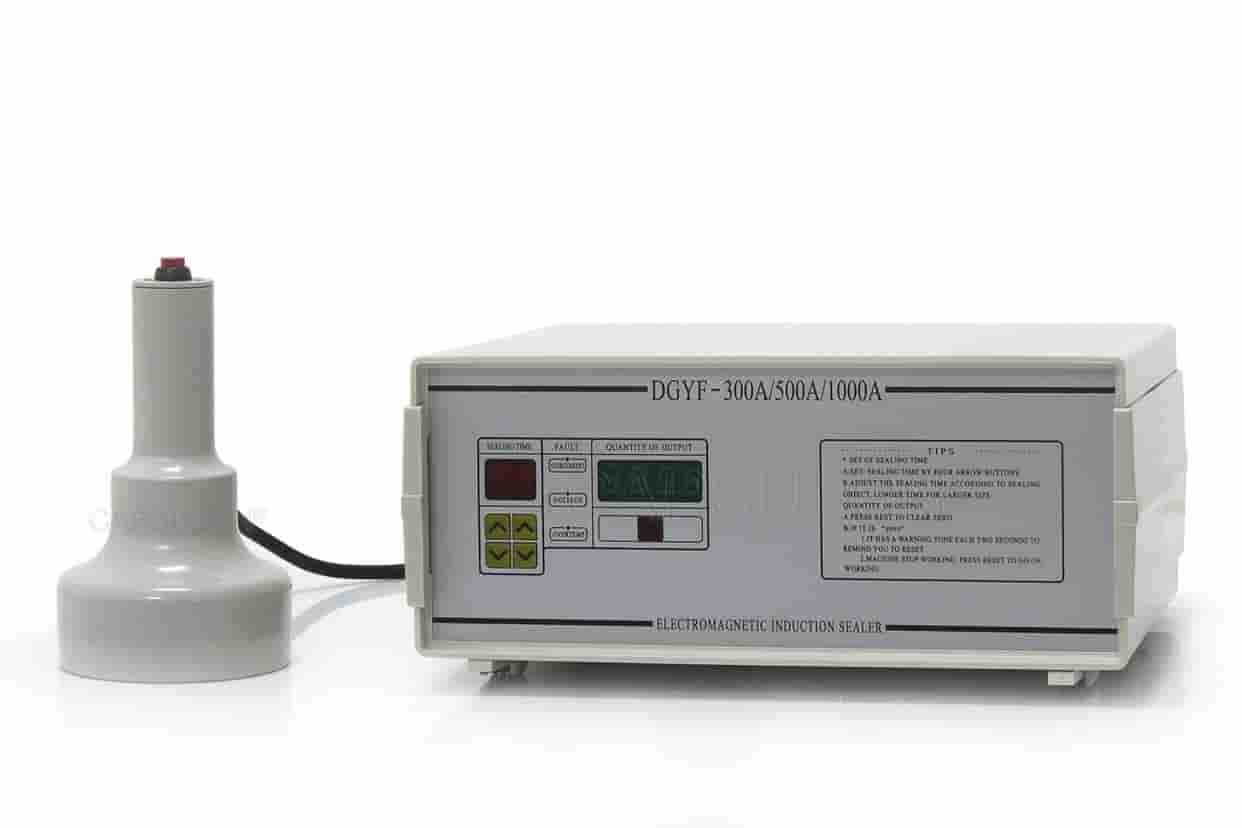
Pros
- Simple to operate and maintain
- Lightweight and easy to move around for different sealing needs
- Ideal for small businesses or low-volume sealing operations
- Generally more affordable than continuous systems
Cons
- Not suitable for high-volume sealing operations
- Requires manual involvement, which might affect sealing quality
- Fewer features than automatic continuous systems
- Requires sealing head changeover to accommodate more cap diameters
Continuous Induction Sealers
Continuous induction sealers are often fully automated. These sealing machines are capable of sealing containers at a high speed and in a continuous way. They use electromagnetic induction to create a hermetic seal on containers as they move along a conveyor belt. Continuous induction sealers can be integrated into an existing packaging line.
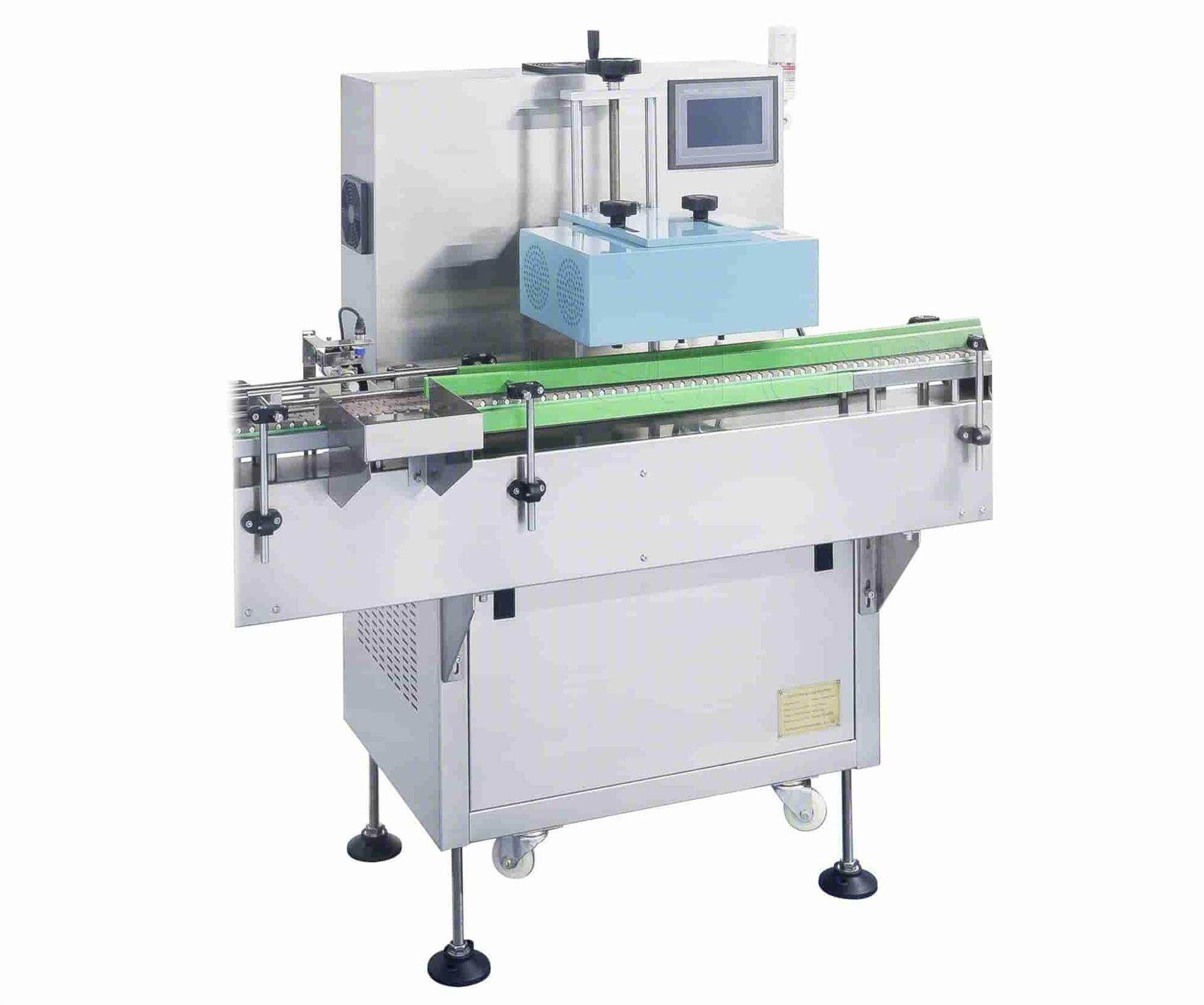
Pros
- Capable of high-speed sealing operations, ideal for high-volume production
- Features advanced technology to create consistent and reliable seals
- Fully automated system for increased efficiency
Cons
- More expensive than portable induction sealers
- Requires regular maintenance to ensure optimal performance
- Has a larger footprint compared to portable systems
Capless Induction Sealers
Unlike other induction sealing machines, capless induction sealers perform sealing prior to capping. This means an induction liner is directly pressed and bonded to the lip of a container without being inserted in a cap. Capless induction sealers can also handle various containers, such as plastic and glass bottles, large-mouth jars, and vials.
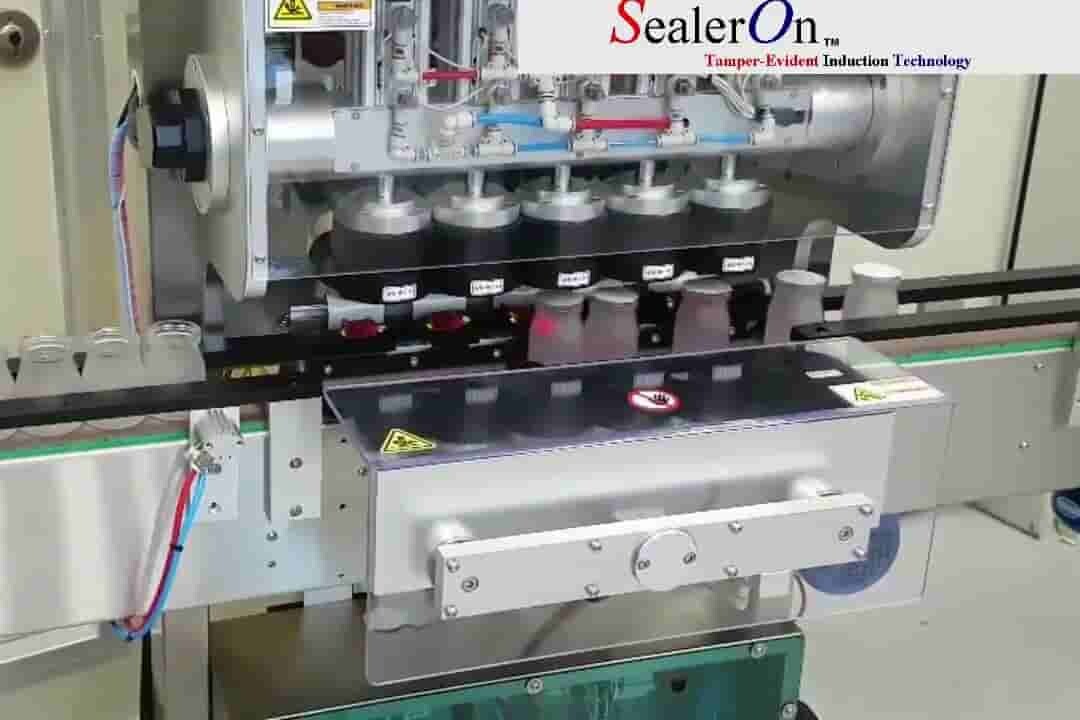
(Image Source: SealerOn)
Pros
- Allows for visual inspection of the sealing result
- Applies more pressure to the induction liner for a better, even seal
- No caps needed, saving you more money on purchasing sealing materials
Cons
- Not suitable for sealing all types of containers
- Increased potential risk of leakage during sealing
- Requires additional training for installation and maintenance due to different configuration
Things to Consider When Looking for the Best Induction Sealer
We all want to find the best induction sealer. However, what should we consider to help us make a smart move? Keep the following key factors in mind when looking for your best induction sealer.
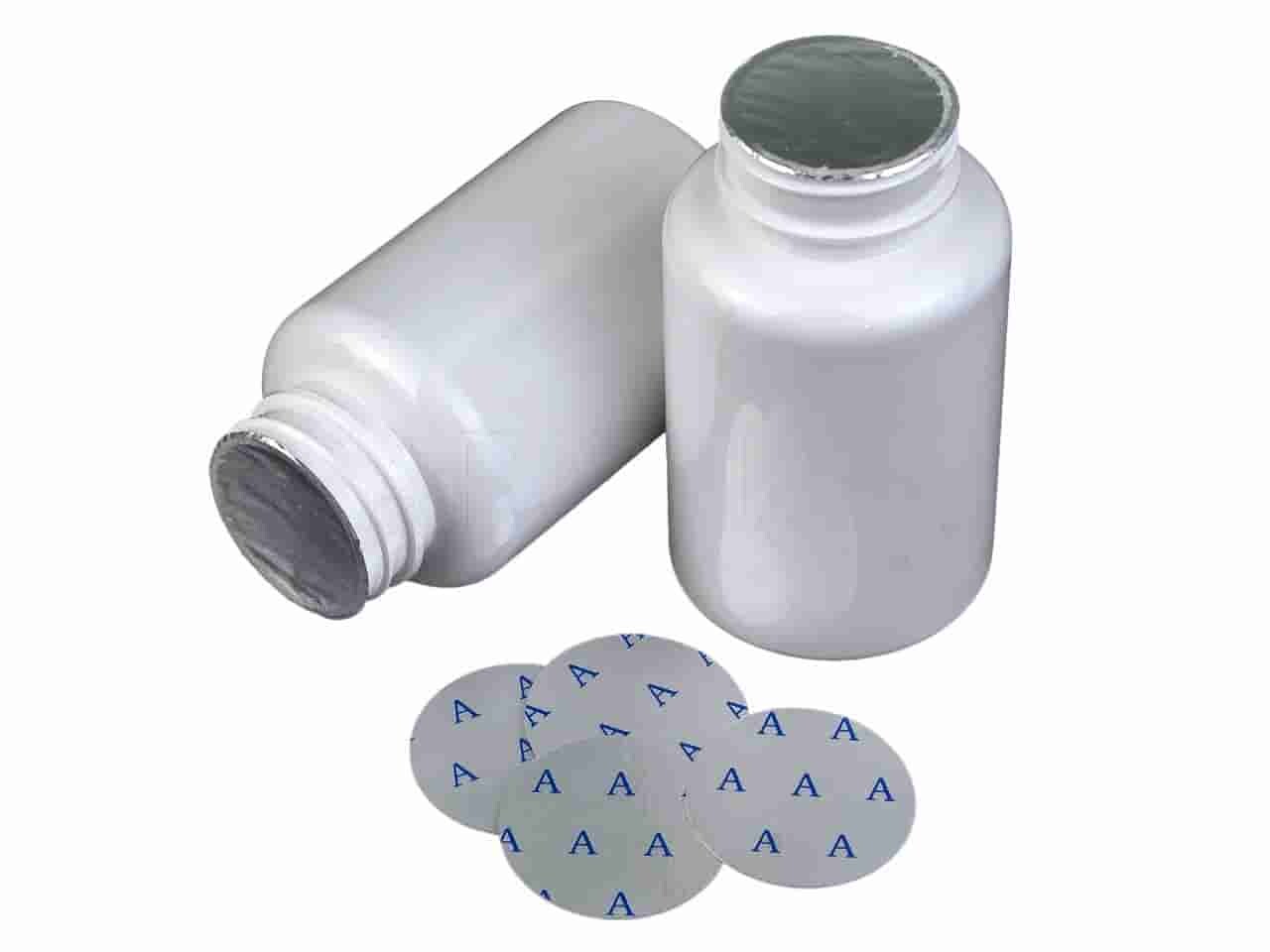
1. What Are You Sealing?
First things first, figure out what kind of containers you're dealing with and the materials you're sealing. Different sealers work better for different stuff.
2. How Much Are You Sealing?
Think about your production volume. Are you sealing a few things here and there, or is it a full-on production line? This impacts the type of sealer you'll need.
3. Need for Speed?
Do you need to seal stuff super fast, or are you okay with taking your time? Continuous sealers are like the speed demons, while portable ones might be more of a leisurely stroll.
4. Who's Doing the Work?
Consider who's operating this thing. If it's a machine whiz, a more complex continuous sealer might be fine. If it's you and your friend, maybe something more straightforward is the way to go.
5. Size and Shape Matters:
Check if the sealer can handle your container gang. Adjustable features are cool because they can flex with different shapes and sizes.
6. Quality Matters:
Everyone wants a good seal, right? Look for adjustable sealing power, digital displays for sealing time (so you get it just right), and some safety features to prevent overheating meltdowns.
7. Easy Operation:
No one wants a headache with complicated controls. Go for something user-friendly to keep things smooth and easy to manage.
8. Built Tough:
You want this thing to last, right? Stainless steel is like the superhero of durability. Also, check if it's easy to keep in good shape for the long haul.
9. Space Fit and Blend:
Measure your space and make sure the sealer fits in without cramping your style. Continuous sealers might need a bit more room with their conveyor belt swagger.
10. Green Sealing Machine:
Consider the environment. An energy-efficient sealer can reduce your environmental impact. Also, it helps save you some bucks in the long run.
11. Budget Talk:
Of course, money matters. Find a sealer that does the job without breaking the bank. Check the upfront costs and ongoing expenses to keep it all in check.
Final Thoughts
In wrapping up our exploration of the best induction sealers, it's clear that finding the perfect fit for your packaging needs is a bit like finding the right key for a lock. Each type — whether it's the versatile portable sealer, the high-speed continuous sealer, or the no-frills capless sealer — brings its own strengths to the table.
Leave your comment
Also Offers
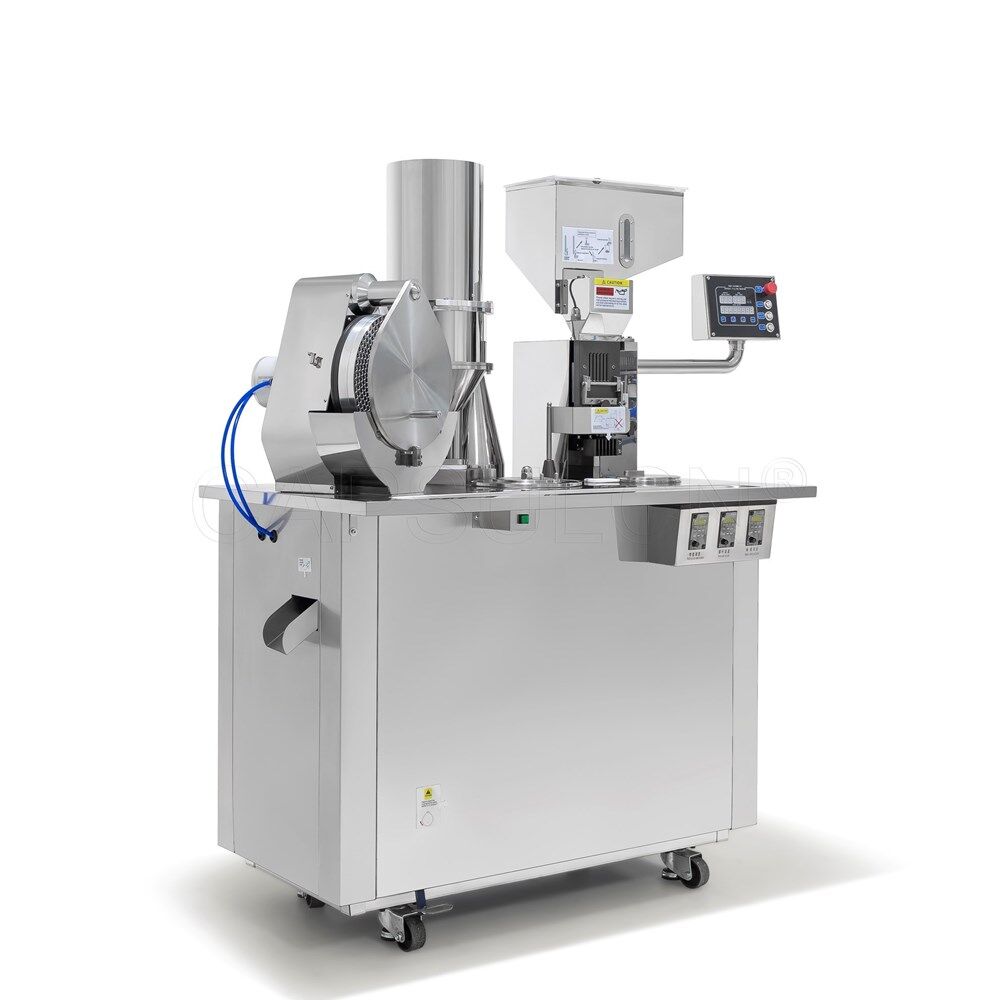
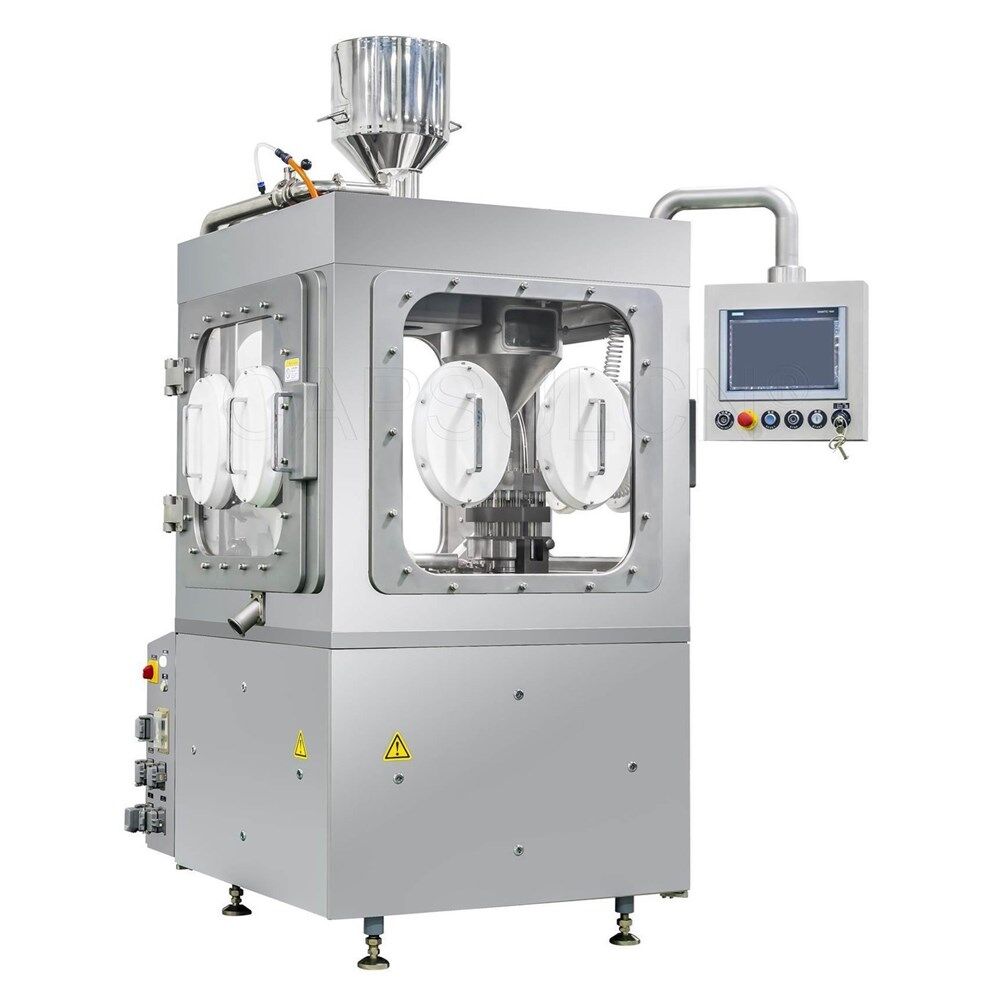
Containment Automatic Capsule Filling Machine SFK-703
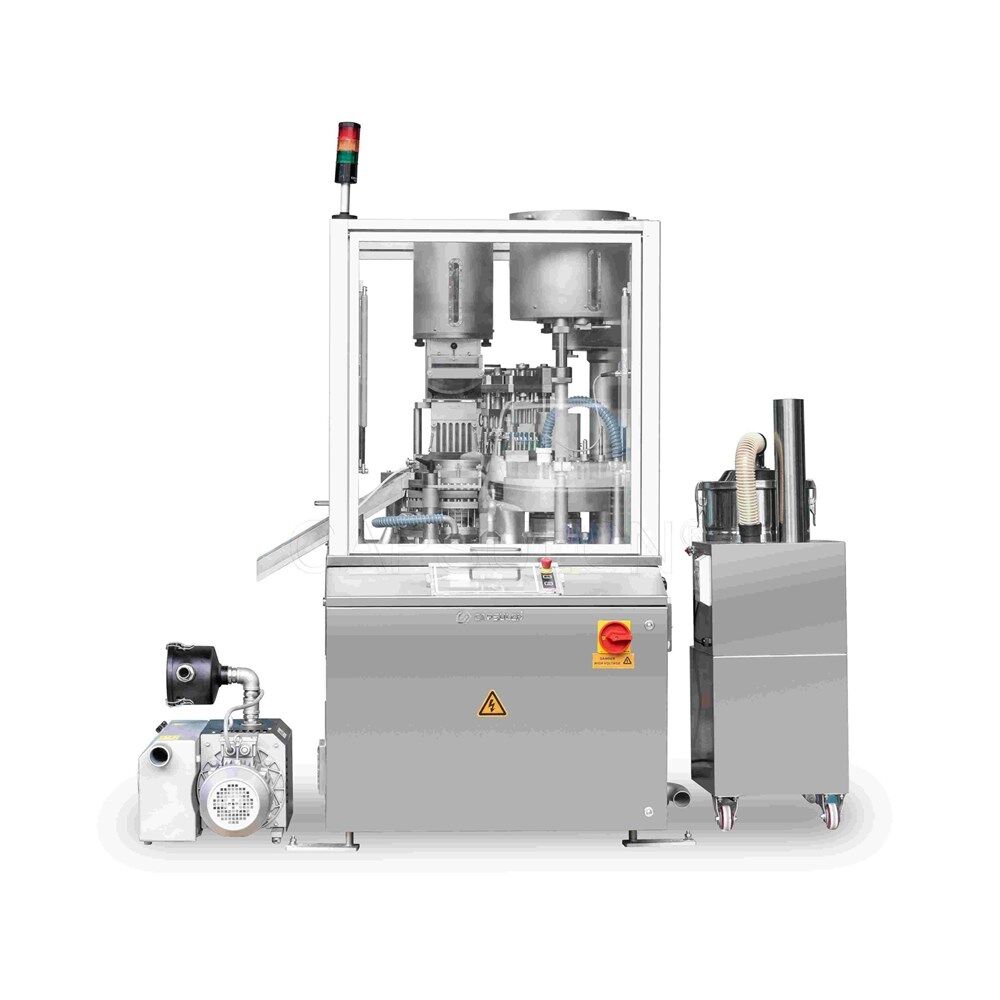
Fully Automatic Dosator Capsule Filling Machine CZ-40

Our Team
As an expert in the pharmaceutical and pharmaceutical packaging industry, iPharMachine has provided solutions for hundreds of pharmaceutical and health product manufacturers for 17 years. By visiting customers, we get good reviews from our customers.
- info@ipharmachine.com
- English Español Deutsche
